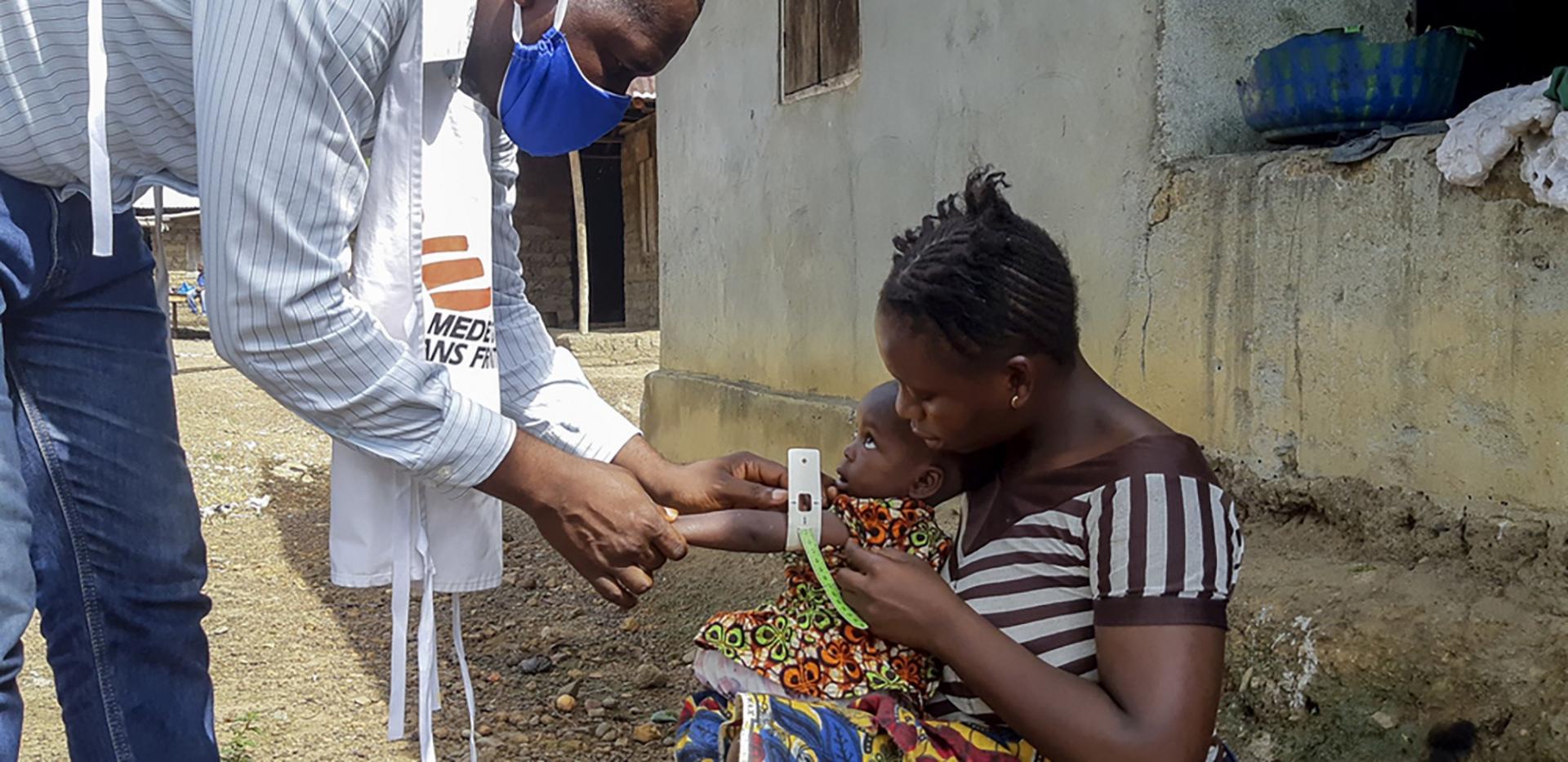MSF paediatrician Carola Buscemi raises concerns about the COVID-19 response interfering with the treatment of measles for children in Sierra Leone.
"Across the world, the COVID-19 pandemic has led people to fear to access healthcare facilities. As a paediatrician working for Doctors Without Borders (MSF) in Sierra Leone, and with the malaria season fast approaching, I am particularly fearful of what reduced health-seeking behaviour may mean for children in a country with a high rate of child mortality.
I work in MSF’s Hangha hospital which provides emergency medical care to children under 5. MSF built the hospital to help reduce Sierra Leone’s incredibly high levels of child mortality (105 per 1,000 live births according to the WHO, by comparison, Italy, where I am from, has a rate of 3). Since opening in March 2019 until the end of May 2020, the hospital has provided over 7,900 consultations in its emergency room; over 3,300 of these were children with malaria.
Our hospital has already seen some significant indirect consequences of the pandemic.
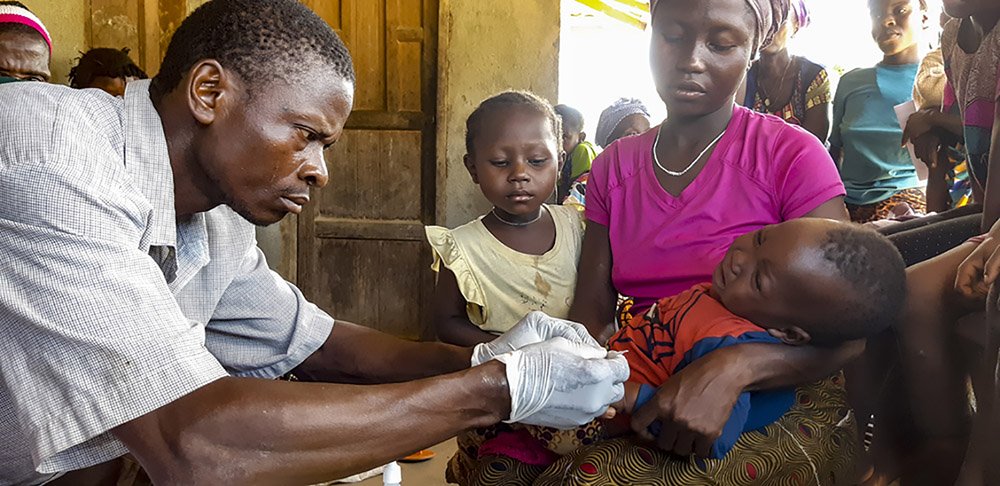
The first case of COVID-19 was confirmed in Sierra Leone on 31 March. Since then, a higher proportion of children are arriving in critical and serious conditions. I remember one child stopped breathing at the entrance to our triage in the emergency room. He had come by ambulance from a small rural village three hours away. Despite all our attempts at resuscitation, the child passed away due to cerebral malaria. He had arrived too late. The child’s mother told me he had had a fever for three days and then got worse; he started having convulsions at home and lost consciousness.
It was heartbreaking but it also made me angry, not towards the mother but about the situation, if the child had come sooner he might have been saved.
This increase in late presentations may be due to COVID-19. My colleagues who work in health promotion say they meet lots of people who tell them they are now scared to go to health facilities. When their children are sick, parents often wait until the child is very unwell before bringing them to the hospital.
This makes me feel so sad and impotent because if children arrive late then sometimes there’s nothing we can do for them.
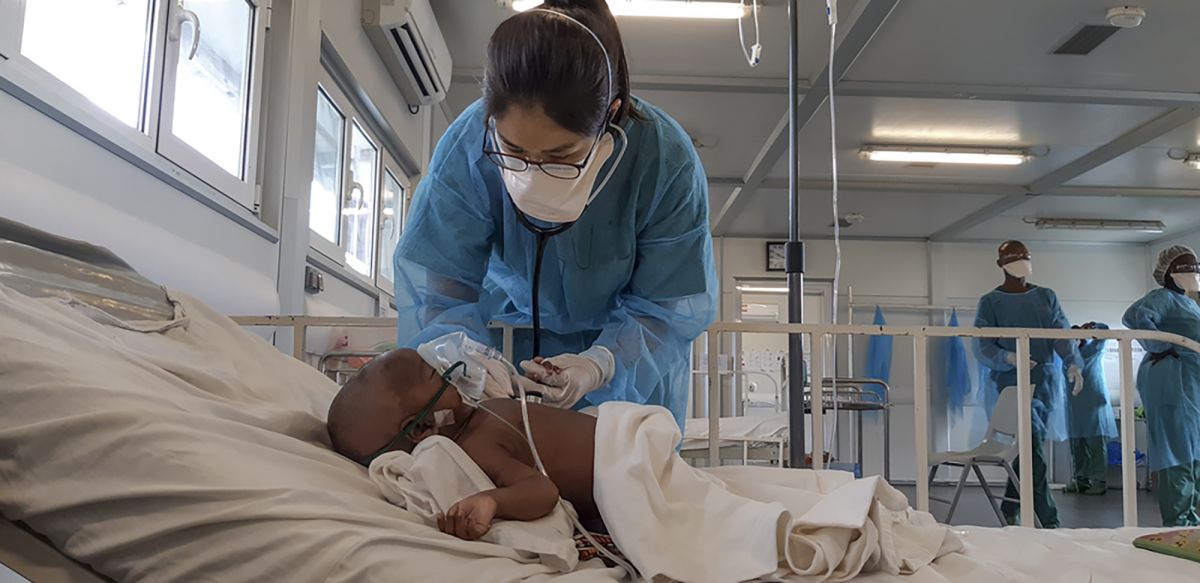
Children under five are the most vulnerable to malaria: in 2018 they accounted for 67% of all malaria deaths worldwide. High-grade fever, vomiting, diarrhoea are common presenting symptoms in children although many of them present with features of severe complicated malaria such as anaemia, hypoglycemia and convulsions.
Sierra Leone is in a region affected by Falciparum parasite, the most deadly form of the malaria parasite. In MSF’s hospital, children who test positive are immediately administered malaria medication, the most critical patients are admitted into ICU and treated for coexisting complications. Most arrive with moderate anaemia but in cases of severe anaemia, a major contributor to child morbidity, we often need to provide blood transfusions to save the child’s life.
The COVID-19 pandemic is a global tragedy but the consequences for children could be terrible if resources are diverted from malaria prevention and treatment. The WHO already predicts a doubling of malaria deaths, the majority of whom will be children, if regular prevention actions are suspended.
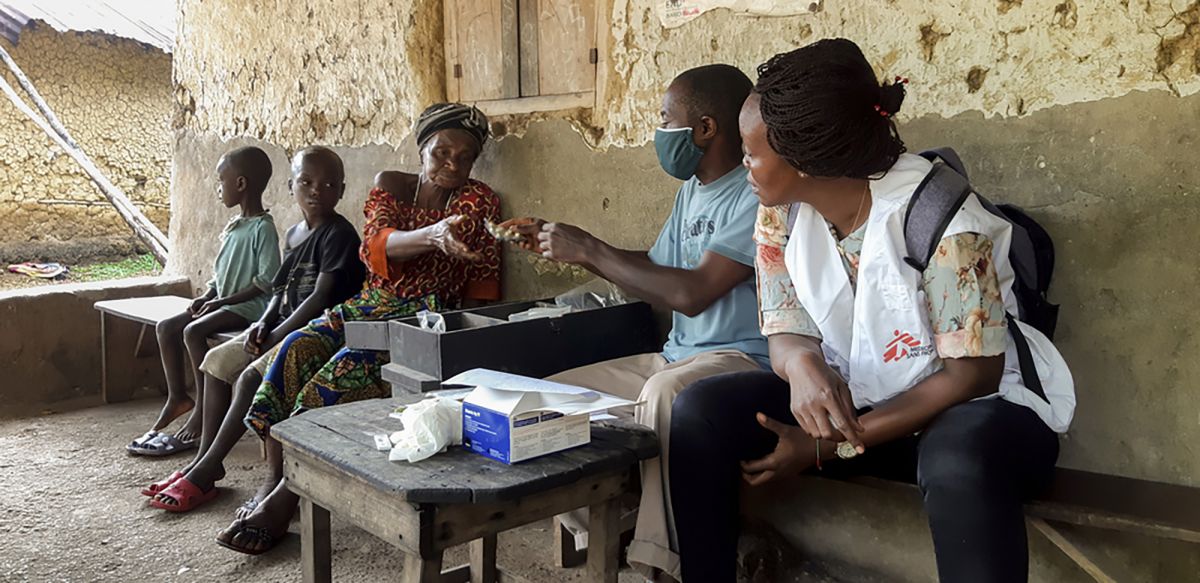
Here in Sierra Leone, the government has stuck to its pre-pandemic plan of distributing 4.6 million bed nets to people across the country, with MSF providing logistical support in the chiefdoms of Gorama Mende and Wandor. All countries with a high prevalence of malaria should engage in prevention activities such as this that reduce cases of malaria and so lessen the strain on health systems.
With health systems facing direct and indirect consequences of COVID-19 health actors must adapt their activities for malaria and other diseases. If health facilities are overloaded, or people are scared to visit them, then community-based care allows people to receive the treatment they need without the need to travel.
In my hospital, MSF has begun assessments of remote villages in which we will run mobile clinics so that people can get the healthcare they need even if they are too scared to travel to a health facility.
MSF also provides medication, training and other support to MoHS community health workers (CHWs) who provide medical care directly in remote villages in the chiefdoms of Gorama Mende, Wandor and Nongowa. The CHWs can diagnose and treat malaria using rapid diagnostic tests and medication, so that people can recover from malaria, at home, in just a few days. At the start of the year, MSF was supporting 35 CHWs, we are now supporting 47 and hope to increase to 65 by the end of the year.
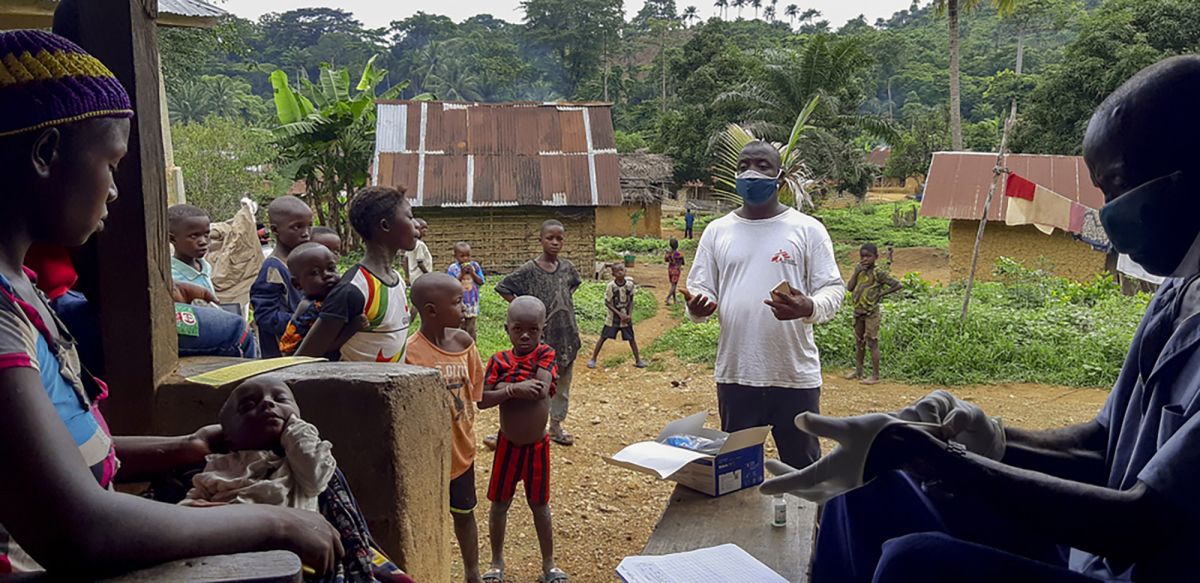
Health actors should prioritize activities such as vector control by supporting mass net distribution, health promotion sensitisations, access to healthcare with prompt diagnosis and effective malaria treatment are essential to avoid an increase in mortality, especially in vulnerable populations. MSF fills the gaps where it can, prioritizing saving lives, but it is important that all health actors continue to take actions that we know can save lives from malaria.
The COVID-19 pandemic is an unprecedented situation for all health actors, including MSF. However, in fighting this new disease, we must not forget all the other conditions that lead to so much loss of life. From what we know so far, the direct consequences of COVID-19 have been mainly felt in adults, by continuing and adapting malaria prevention and treatment we can at least let children be spared."
